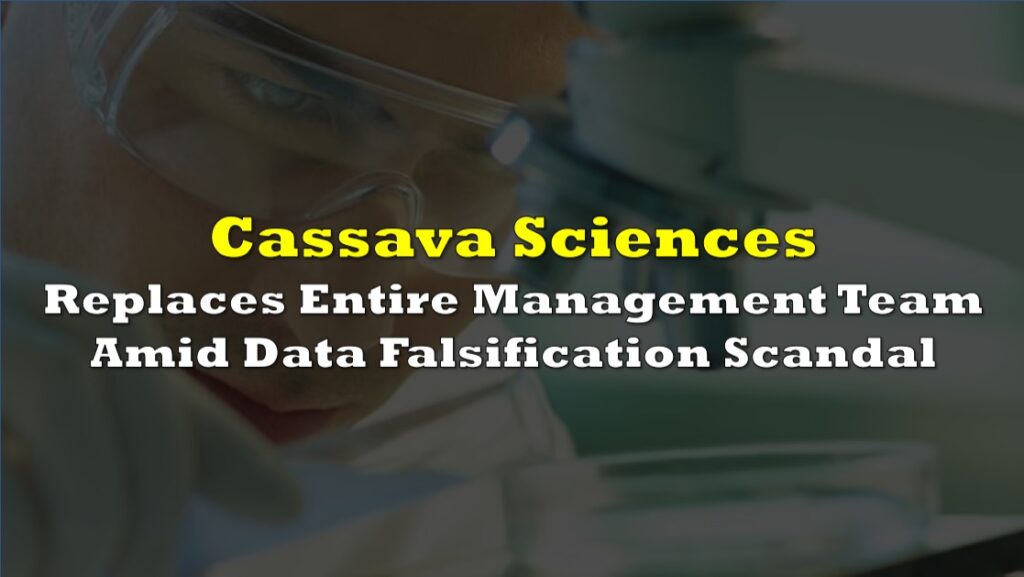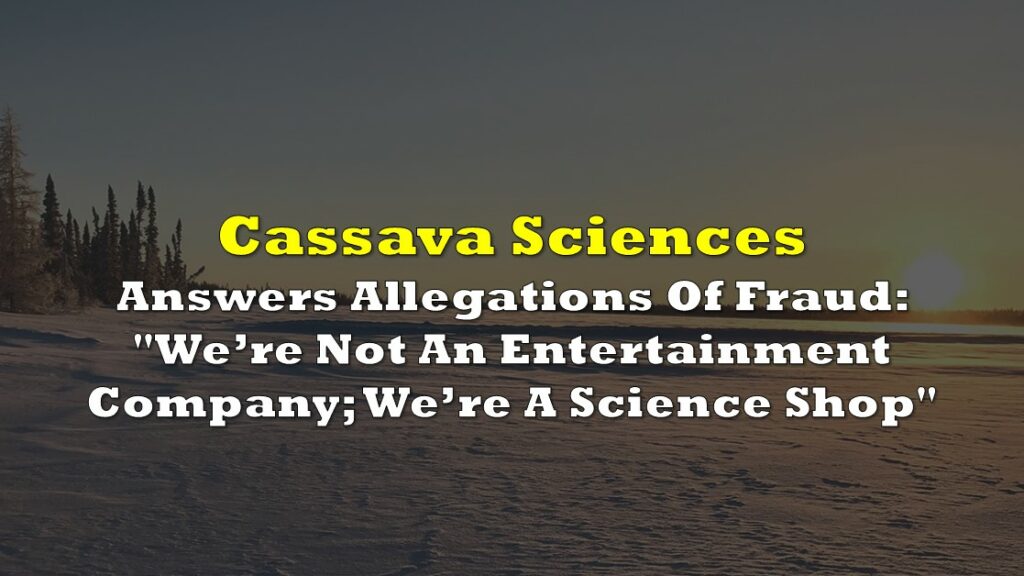Cassava Sciences, Inc. (NASDAQ: SAVA) witnessed a dramatic over 85% plunge in its stock price following the release of disappointing results from a critical Phase 3 Alzheimer’s drug trial and scathing criticism from controversial biotech investor Martin Shkreli. The dual blows have left the once-promising biotechnology company on the brink, forcing the cancellation of future trials and raising questions about the viability of its lead product, simufilam.
The results of Cassava’s ReThink-ALZ Phase 3 trial, announced on November 25, 2024, were unequivocally disappointing. Simufilam, the company’s experimental drug for Alzheimer’s disease, failed to meet its co-primary endpoints, showing no significant improvement in cognitive or functional measures compared to placebo over a 52-week period.
Key data points from the trial revealed:
- The Alzheimer’s Disease Assessment Scale – Cognitive Subscale (ADAS-COG12) showed a non-significant difference (p=0.43).
- The Alzheimer’s Disease Cooperative Study – Activities of Daily Living (ADCS-ADL) similarly failed to reach statistical significance (p=0.40).
In light of these results, Cassava announced the termination of its ongoing ReFocus-ALZ study and an open-label extension trial. CEO Rick Barry expressed gratitude to the study’s participants but acknowledged the company’s inability to deliver on its promise. “These results are disappointing for patients, families, and caregivers who hoped for a novel treatment,” Barry said in a company statement.
$SAVA collapsed -83% today…
— Geiger Capital (@Geiger_Capital) November 25, 2024
The GOAT. 🐐 @MartinShkreli https://t.co/1oFiOMjAlf pic.twitter.com/WdrfmHVsHc
Shkreli’s Paper
Adding to Cassava’s woes, Martin Shkreli, infamous for his role in pharmaceutical price gouging and subsequent incarceration, published a 38-page critique of simufilam’s underlying science. Through his online platform, Shkreli detailed what he described as insurmountable flaws in the drug’s pharmacokinetics, mechanism of action, and clinical trial data.
In his social media thread, Shkreli claims that Simufilam does not penetrate the brain effectively, has a half-life of only four hours, and its proposed mechanism—blocking a protein-protein interaction—is scientifically implausible. He called the drug’s clinical results “random” and advised shorting Cassava stock, predicting it would fall to $2–$3 per share.
I've written a 38 page paper on why Cassava Sciences' ($SAVA) simufilam does not work for Alzheimer's disease. This is a work-in-progress. But, I don't *think* it doesn't work. It is impossible for it to work.
— Martin Shkreli (@MartinShkreli) November 21, 2024
Long thread (1/7)
Cassava’s stock, which traded near $30 per share before the announcement, closed at just over $5. Investors scrambled to offload their shares amid a frenzy of short-selling activity. Analysts and commentators were quick to pile on, with biotech journalist Adam Feuerstein calling the outcome “the best for Alzheimer’s patients,” given what he described as a lack of credible evidence supporting simufilam’s efficacy.
Cassava’s failure underscores the immense challenges inherent in Alzheimer’s drug development. According to Shkreli, 98% of the last 100 Phase 3 Alzheimer’s trials have failed, a statistic that reflects the complexity of addressing neurodegenerative diseases. Many experts attribute this high failure rate to the advanced stage of disease progression in trial participants and the elusive nature of effective drug targets.
Simufilam aimed to inhibit interactions involving filamin A, a protein linked to Alzheimer’s pathology. However, critics argued that the small molecule lacked the necessary properties to disrupt such interactions meaningfully.
The road ahead for Cassava Sciences is fraught with uncertainty. With approximately $149 million in cash reserves, the company may have the resources to pivot to other projects, but its credibility has been deeply shaken. CFO Eric Schoen sought to reassure shareholders, emphasizing Cassava’s financial stability. However, the company’s reliance on simufilam as its flagship product raises existential concerns.
Social media reaction to Cassava’s collapse has been vitriolic. Some commentators, like Ben K., celebrated the downfall, likening it to a reckoning for “toxic” investor bases. Others, like Feuerstein, sympathized with retail investors caught in the fallout.
The $SAVA tears today are absolutely delicious. Another one of the most toxic investor bases on the planet wiped out, as is tradition.
— ben k (@Benshooter) November 25, 2024
And just in time for the holidays! https://t.co/B3QZC6Dd6o pic.twitter.com/qTe6MQQR2e
I'll have more to say about $SAVA later today, but for now…
— Adam Feuerstein ✡️ (@adamfeuerstein) November 25, 2024
This is the best outcome for people with Alzheimer's. I wish it had come sooner.
I'm sorry for the investors who will be dealing with devastating financial losses today. This entire situation got out of hand. I…
“This entire situation got out of hand,” Feuerstein wrote on X. “I wish investors had heeded the warnings instead of buying into conspiracy theories.”
Information for this briefing was found via the sources mentioned. The author has no securities or affiliations related to this organization. Not a recommendation to buy or sell. Always do additional research and consult a professional before purchasing a security. The author holds no licenses.






